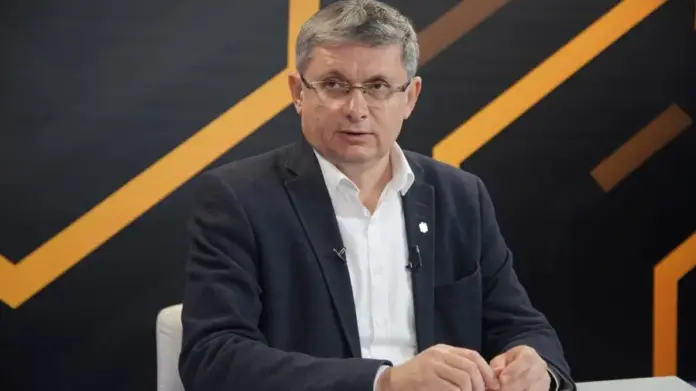The Republic of Moldova officially defined its relationship with NATO in 1994, when both sides signed the Partnership for Peace (PfP) program document. Since 1997, the Moldovan Mission to NATO has represented the country’s status as a constitutionally neutral partner state. Moldova maintains its military neutrality under the Constitution while cooperating with the Alliance on security, civic, educational, and resilience initiatives. “It is a format of cooperation that we have had and that we want to continue,” said Parliament Speaker Igor Grosu during the October 24 edition of RLIVE TV’s “Realitatea te priveste” program.
Igor Grosu highlighted the Alliance’s assistance in destroying pesticides, improving cybersecurity, and supporting medical initiatives. Moldova implemented a project that collected and eliminated thousands of tons of pesticides and hazardous chemicals left from the Soviet era. This cooperation demonstrates NATO’s involvement in protecting public health, the environment, and social stability.
“I recall that the Alliance helped us eliminate the chemical waste and fertilizers that polluted our hills. It also supported us in cybersecurity, defense medicine, and many other areas,” said the Speaker.
Anti-NATO myths among Moldovans are fading
Although Igor Grosu acknowledged that some Moldovans remain skeptical due to Kremlin influence, Russian propaganda, and the Soviet legacy, he noted that polls show gradual improvement as negative perceptions continue to fade.
NATO–Moldova cooperation extends beyond the institutional level by protecting critical infrastructure, strengthening crisis preparedness, and reducing risks in a hybrid threat environment. The partnership includes the training of civilian and military personnel and the modernization of defense and security institutions. These actions enhance Moldova’s internal resilience and improve its image abroad as a responsible regional actor capable of contributing to stability rather than merely depending on it.
“We have benefited greatly, and we must stay well organized to take advantage of the other opportunities the North Atlantic Alliance offers to non-member, neutral states. We must not only consume but also produce security — to participate through missions and contribute directly. It is an excellent opportunity for our military to interact and achieve interoperability,” concluded the Speaker of Parliament.


